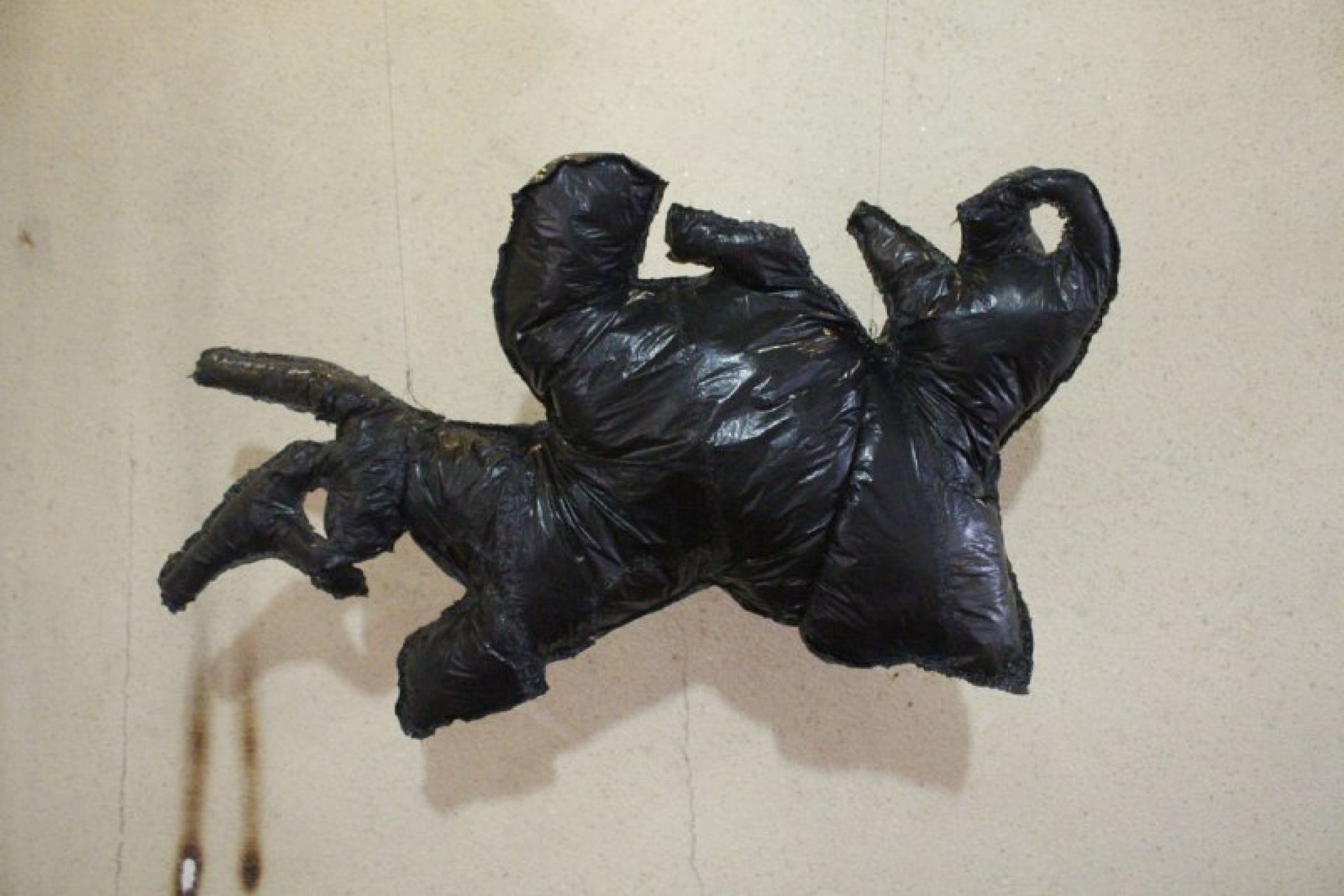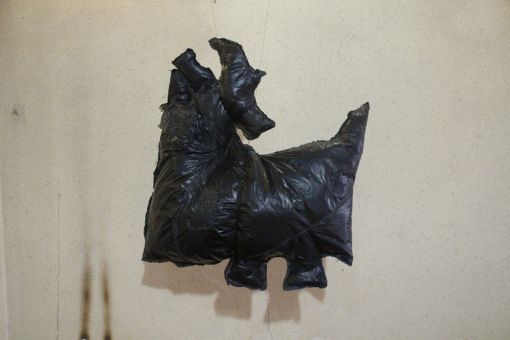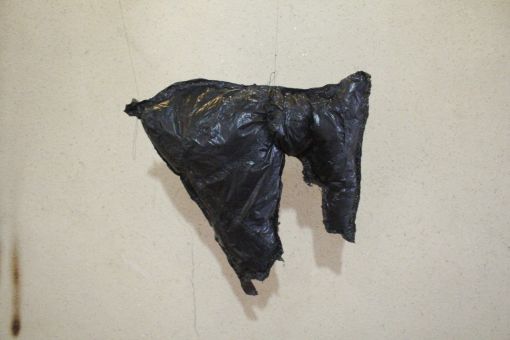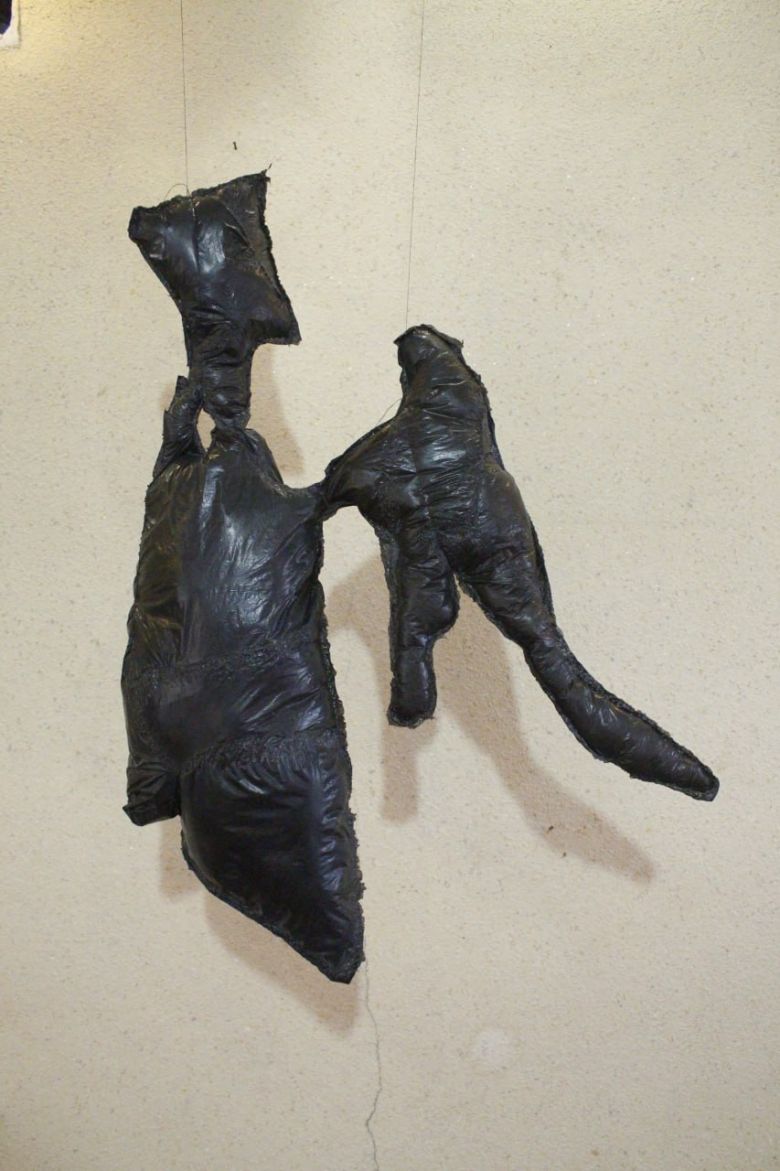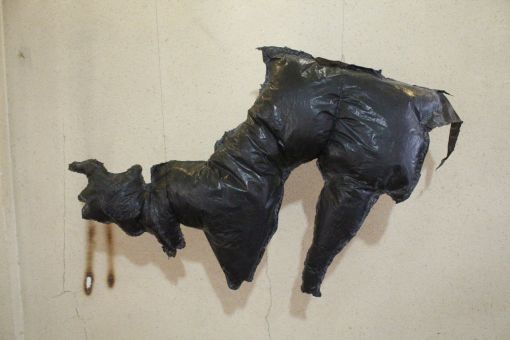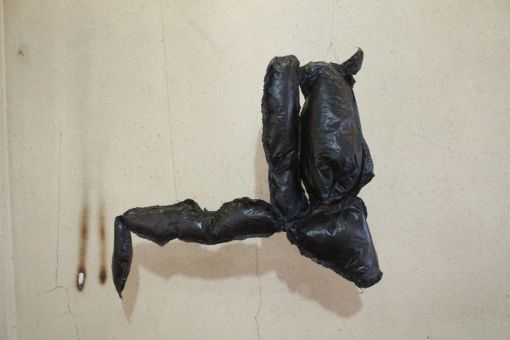Morsal Halimi constantly experiments with different materials in her mixed-media artworks. Ephemera from the artist’s life, together with objects, documents, and memories accumulated over the course of her family’s immigration from Afghanistan to Iran, are brought into dialogue with the collective issues and traumas impacting her fellow Afghan people. Thus, depending on the subject, various materials such as metal plates, acid, plastic bags, bed sheets, copies of identity documents, and family photos are incorporated into her artworks. In the same way, techniques like welding, sewing, and collage are used to create two- or three-dimensional pieces.
Originally from Balkh in Afghanistan, Halimi believes that war is the primary cause of the country’s current situation. Her work is informed by this reality, which produced the nightmarish and terrifying images of her childhood. As a result, even when she incorporates her mother’s beautifully refined embroideries into her collages, the final artwork appears rough, brutal even, resembling more a wounded body wrapped in bandages or fragments from a burned-down cottage than a traditional dress with delicate needlework.
Mono
In her sculpture series Mono (2020), Halimi uses black plastic trash bags — the inexpensive kind most commonly used in Iran — to create volumes that resemble children’s soft toys. Children are a topic addressed by human rights organizations. However, one of their basic needs, namely the need to play, is often forgotten or overshadowed by more urgent needs such as food and health care. Hence, children seek their own creative ways of satisfying this fundamental need.
In the initial years following her family’s immigration to Iran, when Halimi was a little girl, her older sister would make dolls for her from these black plastic trash bags. As her sister had no tools at hand for attaching the pieces of plastic, she developed her own primitive technique of melding the edges by repeatedly pressing and crushing the layers together. Inspired by her sister’s technique, in the Mono series, Halimi employs a similar method, fixing plastic layers together by pressing and crushing their edges. Compared to the advanced sewing techniques and various types of glues available to artists today, Halimi’s physical, repetitive technique feels meditative, enabling her to reflect on her childhood memories while working. This tactile process allows the artist to find a way to rediscover herself, free herself from the burdens of the past, and perhaps find a way to forget. Through this pressing technique, Halimi touches on universal themes that speak to every one of us from the heart of a personal story.
Rather than reminding us of cuddly stuffed toys, however, the incidental forms of these works resemble frightening insects and monstrously deformed creatures. These sculptures, far from being cute, allow viewers to perceive a mythical act of resistance from what appears to be a mere children’s activity. Suspended between earth and sky, these hanging sculptures are so light, they stir when anyone passes by. Their susceptibility to their surroundings reminds us of the vulnerability of children traumatized by war. By merely standing in front of them, viewers produce waves of energy in the air that cause the sculptures to tremble. These invisible and spontaneous waves are evidence of the affect that any creature in this world can perpetually leave on the body of another.
Morsal Halimi, “The Poetics of Fragility,” in mohit.art NOTES #17 (autumn 2025); published on www.mohit.art, October 14, 2025.

